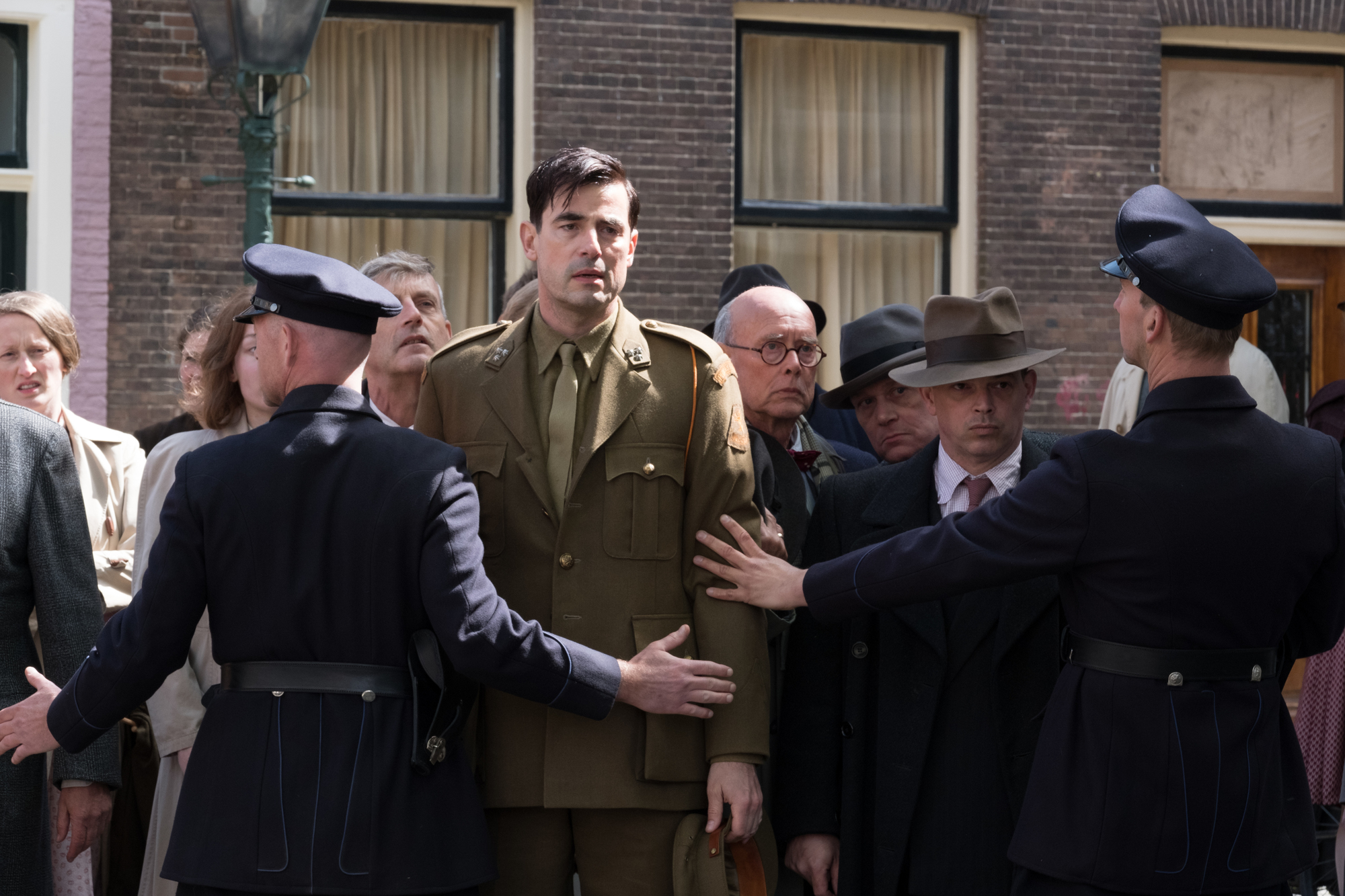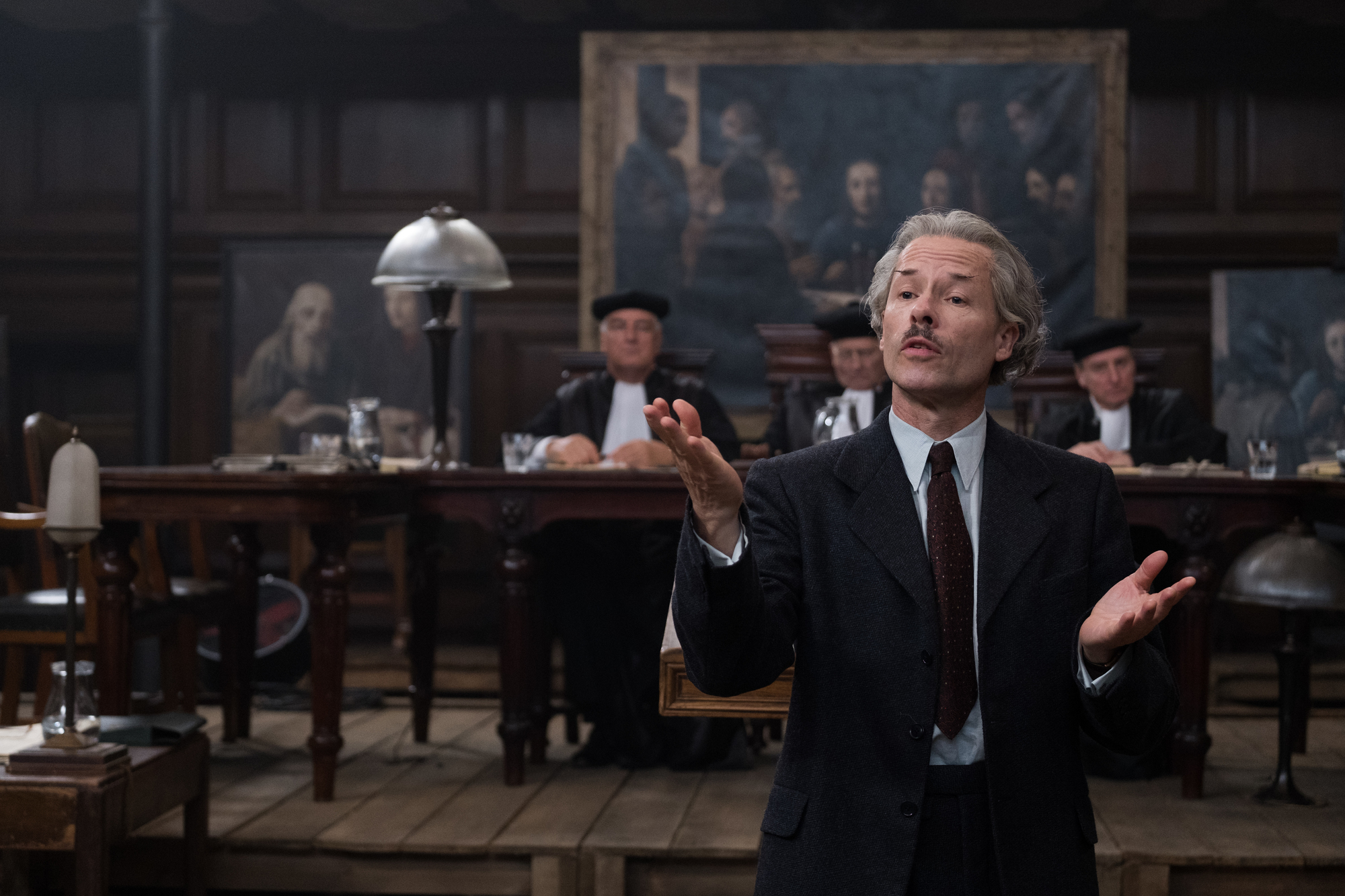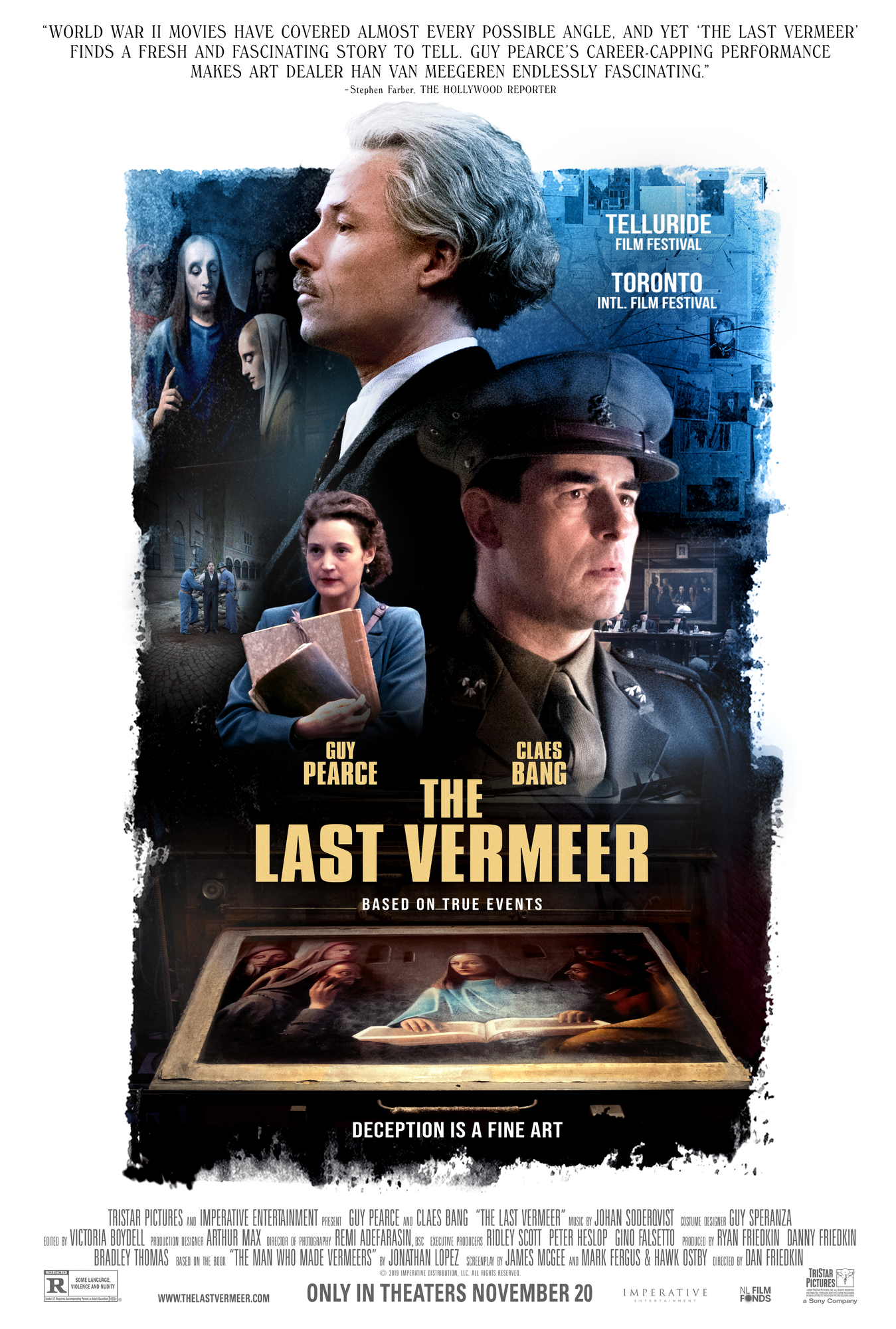I know that 2020 has felt like an eternity for a number of reasons, but how is it possible that this never-ending year has given us not one but two lackluster movies about art starring Claes Bang?
The Burnt Orange Heresy, about an art critic and a reclusive painter, was released in theaters by Sony Pictures Classics right before the pandemic hit and then rereleased in August since it barely had any time to make an impression (not that the experience of seeing it does that either). Now, Bang is back as a Dutch Jew investigating the actions of an eccentric artist accused of collaborating with the Nazis in the immediate aftermath of World War II in The Last Vermeer…

This mediocre drama plays out as a mystery of sorts as Captain Joseph Piller (Bang) attempts to garner an understanding of exactly what flamboyant art dealer Han Van Meegeren (Guy Pearce) did during the war and what his relationship with the Nazis he cozied up to was. It would be simpler for Meegeren to just tell him what he wants to know, but for some reason, Piller is willing to be patient and let him drag it out to fill the runtime of the movie. It’s the kind of narrative that could only play out in a staged recreation, since surely in real life such antics wouldn’t be tolerated, no matter how much flair it adds to an otherwise tepid tale.
Though distinctly different in style, this film is reminiscent of The Monuments Men in its questionable focus on matters that hardly seemed worthy of this kind of attention in the wake of World War II and the Holocaust. Certainly, Piller might have had his assignment from his Allied commanders, but the investment in recovering art and assessing charges based on the proliferation of goods feels insignificant when compared with the vast loss of life and true crimes against humanity committed. Meegeren’s attitude, whatever his guilt may have been (watch the film to learn more), is irritating and flippant at best.

Bang, who I and many others first encountered in the Oscar-nominated Swedish film The Square, has had a series of duds lately. His role in the final season of The Affair, which aired last year, was decent, but he anchored both The Burnt Orange Heresy and The Bay of Silence, two films which didn’t deliver on their theoretically appealing premises. Here, he does adequately but isn’t given much to work with, and, even more regrettably, supporting players like Vicky Krieps (Phantom Thread) and August Diehl (A Hidden Life) are completely wasted. Pearce succeeds at being obnoxious and the best reason to watch this film, far more energetic than he’s been in other roles. He makes the most of a character who demands the audience’s attention, if only because he holds the key to this film’s plot. Art historians may find its subject matter intriguing, but its execution is middling at best.
